
Answer:
Lead and other toxic heavy metals such as cadmium and arsenic can occur in various foods and supplements, typically because they are absorbed by plants from soil, and sometimes due to addition of contaminated ingredients, such as colorants, fillers, or flavors. Mercury is another toxic heavy metal. Although not commonly found in supplements or plant-based foods, it can occur at dangerous levels in seafood, particularly albacore tuna, which, otherwise, can be a healthful food. While very small amounts of these heavy metals are common and not particularly dangerous to most adults, children and pregnant women are more vulnerable, and some products contain levels that even adults should avoid.
Since 1999, ConsumerLab.com has been testing health foods and supplements for heavy metals as part of its broader assessment of the quality of these products, which typically includes tests for active, beneficial compounds, as well as tests for other contaminants such as pathogenic microbes (bacteria, yeast and mold), and other indicators of product quality, such as freshness and proper pill disintegration. (See what ConsumerLab tests for here.)
Health Risks:
Health risk of lead exposure
In children, infants, and fetuses, even low levels of lead can adversely affect neurobehavioral development and cognitive function. Consequently, lead is of particular concern during pregnancy, as the mother can transfer it to the fetus. In adults, lead at somewhat higher levels can cause elevated blood pressure, anemia, and adversely affect the nervous and reproductive systems.
Health risk of cadmium exposure
Cadmium is a probable carcinogen (i.e., cancer-causing agent), can be toxic to the kidneys, can soften the bones -- causing bone pain, and may affect fetal development. Cadmium accumulates in the body due to its long biological half-life in humans of 10 to 35 years. Average daily intake of cadmium for adults in the U.S. is about 4.6 mcg/day, and it has been conservatively estimated that an adult weighing 150 lbs. can tolerate total ongoing daily exposure to cadmium (that is, from all sources of exposure — food, drink, air) of up to 25 mcg, while a child of half that weight can tolerate about 12 mcg (Kim, Nutrients 2018; EFSA 2011). People who are nutritionally deficient in zinc, iron, or calcium appear to be more susceptible to toxicity from cadmium exposure, possibly because more cadmium is absorbed by such individuals (Reeves, Sci Tot Env 2008).
Likelihood of Lead/Heavy Metal Contamination:
Based on ConsumerLab.com's independent tests (over 7,000 products tested since 1999), below are the foods and supplements most likely to be contaminated with lead or other heavy metal. For product-specific results, and our Top Pick product recommendations, use the links to go ConsumerLab’s latest Review of a category.
Be aware that "organic" certification does not mean that a product is less likely to be contaminated with lead or other heavy metal. ConsumerLab has often found more heavy metal contamination in organic products than in non-organic products. Testing for heavy metals is not currently required to qualify for the USDA Organic seal or other organic labeling. The best way to know if a product (organic or non-organic) is contaminated with lead is to see if it has been tested by an independent, third party such as ConsumerLab.com.
Likelihood of Lead/Heavy Metal Contamination
|
|
| Type of Food or Supplement | Heavy Metal Contamination Risk |
| Higher Likelihood: | |
| Ashwagandha | Lead can occur at low levels in ashwagandha powders but not extracts. |
| Canned Tuna | High levels of mercury common in albacore (white) tuna. |
| Canned Tuna, Sardines, Herring | High arsenic in some brands. |
| Cinnamon | Lead can occur in cinnamon powder (but not extracts) and spice, or at high levels due to illegal use of the colorant lead chromate, which can also cause high levels of chromium, as reported in some cinnamon applesauce. |
| Dark Chocolate & Cocoa | Cadmium is common, often in high amounts. Lead can also occur. |
| Flaxseed | High levels of cadmium in some flaxseed products. |
| Ginger | Lead can occur at low to moderate levels in ginger powder and spice (but not extracts). |
| Greens and Whole Food Supplements | Low to moderate levels of lead in greens supplements. |
| Greens Tea | Low levels of lead and arsenic in green tea (based on amounts found in brewed tea). |
| Maca | Occasional, moderate lead in some maca products. |
| Protein Powders | Occasional, moderate levels of cadmium in chocolate-flavored protein powders and moderate levels of lead in plant-based powders. |
| Psyllium | High lead levels in some psyllium products. |
| Seaweed Snacks | Moderate to high levels of cadmium and low levels of lead in seaweed snacks and dried seaweed. |
| Sunflower Seeds and Butters | High levels in cadmium in most sunflower products. |
| Turmeric | Lead can occur at low levels in turmeric powder and spice (but not extracts), or at high levels due to illegal use of the colorant lead chromate. Not common in turmeric extracts or curcumin supplements. |
| Valerian | Lead can occur at low levels in in valerian powders but not extracts. |
| Medium Likelihood: | |
| Calcium | Lead had occurred in calcium in past, but processing techniques have improved. |
| Chia Seed | Moderate lead in some chia seed products. |
| Magnesium | Lead had occurred in magnesium past, but processing techniques have improved. |
| Tofu | Per gram, tofu contains a small amount of cadmium, but a typical 85-gram (3-oz) serving can yield a modest amount — about 1 mcg of cadmium (FDA Total Diet Study Report, 2018-2020). |
Limits and Warnings:
FDA Lead Limits
The FDA has not established a limit on lead or other heavy metals in dietary supplements, leaving the decision of a reasonable limit up to each manufacturer. Due to its common use by children, in April 2022, the FDA proposed an "action level" limit on lead in apple juice of about 2.4 mcg per cup (8 oz) serving, but double that limit for other fruit juices (FDA Draft Guidance for Industry 2022).
No amount of lead is actually considered "safe," but some lead exposure appears to be unavoidable in many food products. For particularly vulnerable populations, the FDA has established maximum daily intakes (i.e., daily limits) for lead from all sources of exposure, called the Interim Reference Levels (IRLs). The current limits were set in 2022 and are 2.2 mcg per day for children, and 8.8 mcg per day for females of childbearing age (Flannery, Regul Toxicol Pharmacol 2022). An IRL of 12.5 mcg per day has been recommended for adults in general (Dolan, Regul Toxicol Pharmacol 2020). Keep in mind that these are not limits to which the FDA holds manufacturers responsible and the FDA does not normally test supplements or health foods for heavy metals.
Limits for Lead and Other Heavy Metals in California, Canada, and Europe
When testing for lead, ConsumerLab generally uses the State of California's Prop 65 limits, above which warning labels are required on products sold in that state (the only state to have such a limit). For a warning of reproductive harm, the limit is 0.5 mcg of lead per daily serving. For a warning of cancer risk, the limit is 15 mcg per daily serving. However, based on settlements of cases of lead contamination in California, which have allowed somewhat higher amounts in products with inherent contamination issues, ConsumerLab allows somewhat higher amounts in products that contain minerals, whole parts of herbs, cocoa (including dark chocolates) and/or for which serving sizes are 5 grams or more.
ConsumerLab tests all products containing whole herbs and/or more than 250 mg of minerals for contamination with lead, as well as for cadmium and arsenic. ConsumerLab tests for mercury in products where there is contamination concern, such as in canned fish (commonly contaminated).
When testing for cadmium, ConsumerLab generally applies the limit in California of 4.1 mcg, above which a warning regarding reproductive harm is to appear on the label. Canada has a similar limit for cadmium in a natural health product of 6 mcg for an individual weighing 150 lbs. and 3 mcg for a 75 lb individual, such as a child. The European Union has established a cadmium limit of 0.1 mcg per gram in grains (other than wheat and rice, for which the limit is 0.2 mcg per gram), but permits higher levels in certain foods for which cadmium often occurs at higher levels, including oil seeds such as linseed (flaxseed), in which it permits 0.5 mcg per gram.
Other Third-Party Groups Testing Heavy Metals in Foods and Supplements:
There are independent groups other than ConsumerLab.com that test and report levels of lead and other heavy metals in foods and supplements. However, these groups typically do not also test for potentially beneficial compounds in products, as ConsumerLab does. While the information generated by the other groups can be useful, it’s important to understand how each group assesses the level of risk associated with their findings, as, sometimes, we believe the reported risk may be overstated or misconstrued.
For example, Lead Safe Mama — a business focused on childhood lead poisoning prevention and consumer goods safety -- has classified some supplements as "unsafe for consumption by children" due to levels of heavy metals. However, Lead Safe Mama typically bases its concerns on strict limits proposed in the Baby Food Safety Act of 2021, which focused on infant and toddler food and did not become law. These limits are not based on amounts of heavy metals in a serving of a product, but on concentrations of heavy metals, as expressed in parts per billion (PPB), also known as micrograms per kilogram. This may be appropriate for baby foods, but does not make sense, in our opinion, for supplements with small serving sizes. This is because the risk posed by a toxin is a function of its amount (or dose), i.e., 15 grams of baby food with a moderate concentration of lead may yield a dangerous amount of lead, but a 1-gram multivitamin with the same concentration of lead contains only 1/15th as much lead per serving as the baby food and may pose little risk.
Furthermore, Lead Safe Mama sometimes applies these baby food limits to supplements intended for adults, which can cause unnecessary consumer concern. Our readers sometimes ask us about such findings, leading us to comment, for example, on findings relating to multivitamins, hemp seed, apple cider vinegar, and green tea.
The Bottom Line:
Supplements and foods that are plant-based may contain toxic heavy metals, such as lead and cadmium, although this is less likely with extracts from plants. Certain fish can also be contaminated with mercury and arsenic. ConsumerLab has identified the types of products that pose the highest risk from heavy metals, based on its tests of more than 7,000 products.
Join today to unlock all member benefits including full access to all CL Answers and over 1,400 reviews.
Join NowAlready a member? Sign In Here.
Join now at www.consumerlab.com/join/

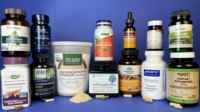
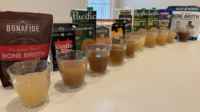
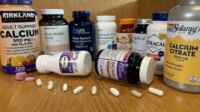
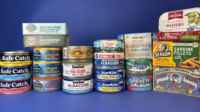
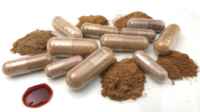
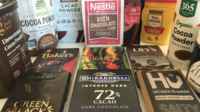
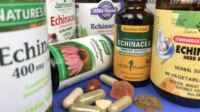
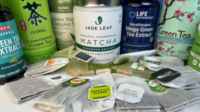
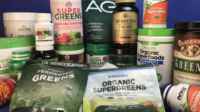
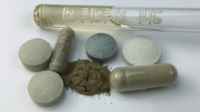
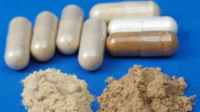
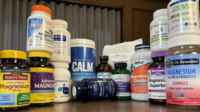
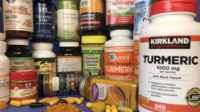
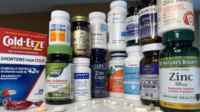
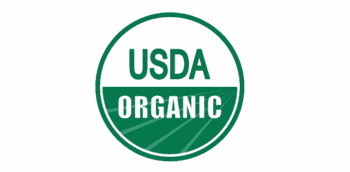








Submit your comment
This feature is restricted to active members.
Join now to add comments and get all member benefits, including over 1,400 reviews.
Join NowAlready a member? Sign in here.